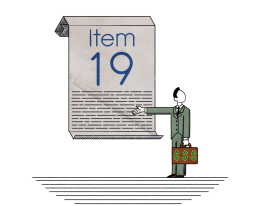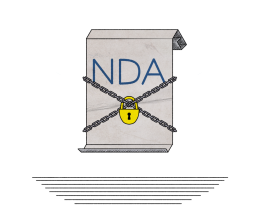How to Effectively Sell Your Franchise Business
So, you are thinking of selling your business, or part of your business. Congratulations! Now, take a seat and roll up your sleeves. There is hard work and tears ahead (and not just for your attorney).
A few years ago, my husband and I sold our house. But before we could put it on the market, our agent told us to get to work. We went through every drawer and every closet, removed anything offensive (don’t ask) and organized every square inch. Then, we had the plumber look at the leaky sink, replaced the roof, and fixed all the creaky doors. Our agent then walked through our house and told us to replace the window coverings and remove all personal items. Our agent told us it was easier to fix and clean-up before the potential buyer was insisting on it. Then, and only then were we ready for prospects.
You should treat the sale of your business in the same way. This process takes time, and doesn’t tend to be very fun. But the work you do before you actually sell your business is the best way for you to preserve the value of your company. I’ve broken this down in more detail below.
Tip #1: Clean House Before You Go to Market. Most of my clients do a great job of spiffing up their storefronts, but they tend to ignore the back office. In my experience, it is the mess in the back office that Buyers most often use as an excuse to ask for a discounted purchase price. For example, if you are a franchisor, do you have complete records showing that you have followed the sales disclosure regulations for each of your franchise sales? If not, Buyer’s counsel will often argue that Buyer will need to discount the price (or possibly defer payment of part of the purchase price) because of the risks that Buyer has learned about.
So, what is the best way to clean house? I start by sending my clients a standard due diligence checklist. This is the document that most Buyers use to request information from their Seller once the sales process begins. I highlight the items that I would anticipate will be the highest priority for a Buyer of Seller’s company and ask my clients to prepare their files for each item. If any information is missing or is not in order, we can often resolve it if we have the time and space to fix it ahead of time. If Buyer is the one who finds an oopsie in the files, we don’t usually have the option to fix it.
If you are considering selling your business in the near future, reach out to us. We’re happy to have a brief discussion with you about the process, and to send you a due diligence checklist for you to use to start cleaning house. Then we can have your business looking clean and bright, and lessen the chance for Buyer asking for a discount.
Tip #2: Hire (and use) your Professionals. We know you are the expert at running your business. But you may not have the same expertise in the business of buying and selling companies, which is a specialty all its own. Generally, we recommend that you work with a corporate attorney, an accountant, and possibly a broker and/or a financial consultant.
Timing is also an issue. Many sellers wait to bring in professionals until later in the process (hoping to save money). You can actually save money if you bring professionals into the process early on. We would recommend involving your professionals before you even go to market. For example, I’m often brought on board after a Letter of Intent (LOI) has been signed. Often, this means that we are trying to negotiate legal protections later in the process which were unintentionally given away in the LOI.
You’ll also want to consider each of the protections you need during the process. For example, your attorney should prepare a “deal-specific non-compete” early on in the process, and provide guidance on what types of information you should disclose before a purchase agreement is signed. Bringing on professionals early on in the process will help protect the confidentiality of your business, and make sure that you don’t give away benefits of the sale that could decrease the value of your business.
Tip #3: Know your Buyer. You found a Buyer! Life is good! Is there anything else you need to worry about? Unfortunately, this is an area that many Sellers tend to ignore. As much as companies want to sell their company and then move on, selling the company is not the end of the road for Sellers. Most purchase agreements contain various ongoing issues: a portion of the purchase price may be deferred, Seller may end up agreeing to finance a portion of the purchase price, the lease or other third party agreements may be assumed, etc. This means that even after the business is sold, the Buyer and the Seller are still riding off into the sunset together to some extent.
So, what should you be doing as the Seller? We recommend that a minimum you do some research on the financial strength of your Buyer. We would recommend that you start by researching the type of information that is publicly available online, including a UCC search and search for other industry-specific financial information, like audited financials in an FDD (if the Buyer is a franchisor).
Finally, you may want to consider researching more of the soft-side information. Is the Buyer reliable? Well-respected in its industry? Does the Buyer have a similar corporate culture as your company? Being discriminating on your Buyer will help avoid going down an expensive and time-consuming negotiation path with the wrong buyer. It will also help you confirm that the Buyer will have the ability to pay your purchase price.
Should I Have an Item 19 in my FDD?
When I get asked this question, I respond as follows:
“The FDD has 23 Items. If there were just one Item in the Franchise Disclosure Document (FDD) you could look in deciding whether or not to buy a franchise, which Item would it be? I don’t care what it is, how much it costs, I need to know if it makes money.”
FDDs tend to be packed with information and details, and prospective franchisees often review several FDDs before making their decision. But in reality, most franchisees are looking for one thing: a franchise that will bring a good return on their investment. This is why most prospective franchisees would say that Item 19 is the most important Item in the FDD: if the Item 19 does not pass the test, none of the other items are relevant.
This is one reason why presenting a FPR in a fair and accurate manner is vital. Item 19 tends to be high risk from a litigation standpoint, and should a franchisee become unhappy with the franchise relationship, its attorney will likely try to pick apart the Item 19 to find anything unreasonable or misleading.
In 2018, NASAA created a commentary that raised the bar for Item 19 representations. You can access the complete NASAA Commentary at http://nasaa.cdn.s3.amazonaws.com/wp-content/uploads/2017/05/Financial-Performance-Representation-Commentary.pdf. Here are some of the most important new requirements:
Newly Required Definitions
-
Gross Sales: If the FPR uses gross sales or a similar term (e.g. gross revenues) you must also include a definition of the term and disclose which items, if any, you are deducting from the total revenue, including sales tax, discounts, allowances, and returns.
-
Net Income: If the FPR uses net income or a similar term (e.g. net profit) you must also include a definition of the term and disclose which items you are deducting from gross profit, including ordinary and recurring operating expenses, interest, income taxes, depreciation, and amortization.
Using Averages and Medians
-
Whenever you disclose an average of any numbers in the FPR, you also must disclose the median of those numbers because the existence of outliers may skew an average, thereby making it misleading (even if the calculation is accurate).
-
Whenever you disclose the average of gross sales, you also must disclose the highest and lowest numbers in the range.
Imputing Franchisee Costs on Company-Owned Outlets
-
In a FPR disclosing net profit for a company- or affiliate-owned outlet, you must adjust or supplement the FPR to include imputed royalties, advertising fund contributions, and other fees not paid by these outlets.
-
The disclosure of these differences must be clearly presented and in the same format as the rest of the FPR. For example, if the FPR presents data in a table, the differences must be adjusted within or added to the end of the table.
-
Imputing costs in this way may constitute a financial projection using historical data. We recommend you include a disclosure regarding the bases and assumptions relied upon as a part of the notes to the FPR tables.
Including Company-Owned Data when Operational Franchises Exist
-
Generally, if you make a FPR that uses data from company-owned outlets, you must also include data from franchised outlets if any exist.
- Some registration states require that you exclude any franchised outlets that have been in operation less than 12 months as of the most recent fiscal year end.
Excluding Data of Closed Outlets from Averages or Medians
-
You can only exclude data from closed outlets if you also disclose:
- the number of company-owned outlets that closed during the time period;
- the number of franchised outlets that closed during the time period; and
- the number of excluded outlets that closed during the same time period after being open less than 12 months.
Separating Company-Owned and Franchised Outlet Data
-
If you have a FPR that includes data from both franchised outlets and company-owned outlets, you must disclose the data from the company-owned outlets and the franchised outlets separately. Once you separately disclose data from both franchised outlets and company-owned outlets in an FPR, you may then choose to also present the same data in a combined format.
Subsets
-
Subsets of data are allowed if they are reasonable, accurate, and not misleading
-
Subsets are not allowed if there are fewer than 10 total combined company-owned and franchised outlets as of the end of your last fiscal year
-
You can’t use subsets to cherry pick (e.g. top performers)
- Some registration states won’t allow any subsets that only report on more mature outlets (2+ years)
Full Guide to California Franchise Exemptions
Nobody wants to wait in line…especially when you’ve worked hard and paid a lot of money just to get to the entrance. Disneyland first introduced the FastPass in 1999. This pass lets them skip the long lines for popular rides. It’s a win-win because FastPass frees guests to enjoy their time—and spend more money—elsewhere in the park.
In California, the process to register a new franchise offering might feel like waiting in a never-ending line for a ride at Disneyland. Even after investing the time and money to get your FDD ready, it can take up to four months to be approved to start offering and selling franchises in California.
Luckily, there are several exemptions from registration in California that might allow you to skip the line and “FastPass” your way to selling immediately.
Here are a few of the common California franchise exemptions:
-
Large Franchisee
-
Experienced Franchisee
-
Fractional Franchise
-
Out-of-State Sales
Large Franchisee Exemption
If every purchaser of the franchise meets at least one of the following categories and has knowledge and experience in financial and business matters, you may be exempt from both California’s registration and disclosure laws:
-
A natural person with over $300,000 in gross income per year in each of the previous two years with reasonable expectations to reach that level during the current year. The purchaser may include his or her spouse’s gross income, but the joint gross income must exceed $500,000;
-
A natural person with a net worth (combined with spouse) of more than $1,000,000 excluding home, home furnishings, retirement assets, and vehicles; or
-
An entity with total assets over $5,000,000 according to its most recent financial statement (prepared in accordance with U.S. GAAP).
You must file a notice of exemption and pay a filing fee before using the exemption.
Experienced Franchisee Exemption
Sales or transfers to an entity that is owned by an experienced franchisee who meets all of the following requirements may be exempt from both California’s registration and disclosure laws:
-
Experienced franchisee owns at least a 50% interest in the entity;
-
Experienced franchisee has at least twenty-four months’ experience being responsible for the financial and operational aspects of a business offering products or services substantially similar to those offered by the franchised business;
-
The experience must have occurred within seven years of the date of the sale;
-
The experienced franchisee may not be controlled by the franchisor.
You must file a notice of exemption and pay a filing fee before using the exemption.
Fractional Franchisee Exemption
The fractional franchise exemption’s purpose is to allow an existing business to add new, similar products or services. If all of the following requirements are met you may be exempt from both California’s registration and disclosure laws:
-
For individuals, the franchisee must have been engaged in a business offering substantially similar or related products or services for at least twenty-four months immediately before the sale of the franchise;
- For entities, an existing officer, a director, or a managing agent of the franchisee must have the necessary experience, and must have been in the current position for at least the last twenty-four months;
- The new product or service must be substantially similar or related to the product or service being offered by the franchisee in its existing business;
- The franchised business must be operated from the same location as the franchisee’s existing business; and
- At the time the franchise is granted, the parties must anticipate that sales from the franchised business will not be greater than 20% of the total sales of the franchisee on an annual basis.
You must file a notice of exemption and pay a filing fee before using the exemption.
Out-of-State Sales Exemption
California exempts franchise sales where:
-
the franchise purchaser is a resident of another state or a foreign country; and
- all locations from which transactions between the franchised business and its customers are made, or goods or services are distributed, are physically located outside the state.
The out-of-state exemption does not require a filing.
Don’t wait in line unless you have to.
Confidential Information Clause & NDA : All You Need to Know
Confidentiality or non-disclosure agreements (NDA’s) come in different forms and sizes, from stand-alone NDA’s to just a couple of sentences in a long commercial contract. Unfortunately, at times NDA’s are one-sided, overreaching, and create unrealistic obligations. Complicating matters is that vendors (e.g. supplier, service provider, consultant) often present a franchisor with an NDA which fails to contemplate the dynamics of franchising.
The Lord Voldemort Clause. Some vendor contracts contain a confidentiality clause that start offs by saying something along the lines of, “This Agreement and it’s terms and conditions are confidential.” One more time, “This Agreement and its terms and conditions are confidential.” Construed literally (which is how a contract is supposed to be construed), this statement prohibits each bound party from telling anyone of even the mere existence of the Agreement. Contracts are made to achieve an end result, and in franchising and other commercial contexts, achieving that end result often involves sharing information with third-parties (i.e. anyone not signing the contract). Think twice before signing a contract with a Voldemort clause. Instead take the time to identify specific information which the parties must keep confidential.
I Would Tell You; But Then I Would Need to Kill You. NDA’s and confidentiality clauses generally prohibit disclosure of confidential information to third-parties (i.e. anyone not signing the contract). When it comes to a contract between a vendor and a franchisor, third-parties include franchisees and prospective franchisees. Imagine getting up on a stage in front of a room full of your franchisees, and saying, “we entered into a contract, but I can’t tell you who with; to get you a great deal, but I can’t tell you about.” Most vendor’s form NDA’s were not written with franchising in mind. Before you agree to be bound by an NDA or confidentiality provision, think about the information you will need to share, and to with whom you will need to share it. In particular, will you be permitted to …
-
share enough information with your franchise advisory council to obtain meaningful feedback?
-
tell the franchisees about the fees they will be paying?
-
tell distributors about the prices they will be paying a supplier?
-
include, in Item 8 of your FDD, all of the information required by law?
Depending on the circumstances, you may be able to address this issue by adding appropriate language to carve out confidentiality exceptions.
Don’t Make a Promises a Franchisee Needs to Keep. When explaining to a vendor that you cannot sign an NDA prohibiting you from describing the vendor’s program to your franchisees, the vendor might respond by permitting you to share confidential information with your franchisees, as long as you are responsible for the franchisees’ improper disclosure or use of the confidential information. Even if you have a contractual right (i.e. in the franchise agreement) to swear your franchisees to secrecy, there is always the possibility of inappropriate disclosure by a franchisee, which would render you in breach of the NDA, and responsible for the consequences of that breach. A better alternative is to obtain the vendor’s consent, in the NDA itself, to the specific information that the franchisor will share with its franchisee. Another option, if the vendor feels the need for each of the franchisees to be subject to a confidentiality agreement, is to have the vendor obtain an NDA (in a form vetted by the franchisor) from each franchisee, but this approach can be administratively challenging.
Whose IP Is It Anyway? Some NDA’s address topics going well beyond confidentiality. In particular, an NDA intended to be used in connection with exploratory discussions, which might result in a commercial relationship, may include language regarding the ownership of intellectual property developed during anticipated commercial relationship. As a general proposition, it is more prudent to remove this type of provision from an NDA, and address the issue in a subsequent agreement defining the commercial relationship, if there is one.
One-Way; Do Not Enter. Or at least, slow down, and proceed carefully when considering signing a vendor’s one-way (or “unilateral”) NDA – an NDA which protects the vendor’s confidential information, but not your confidential information. A one-way NDA may be appropriate in some instances, such as where you are buying access to proprietary information. However, most commercial relationships involve an exchange of information, making a two-way (or “mutual”) NDA more appropriate. Because one-way NDA’s are only drafted to protect one of the two parties, they are often overreaching. In contrast, in the case of a mutual NDA – if the provisions truly impose reciprocal obligations on each the Franchisor and vendor – the vendor is not asking anything of the Franchisor that the vendor is not itself willing to do.
Beware of Titles. Just because an NDA is titled “Mutual NDA” does not mean that it is fair, balanced, and contains only reciprocal provisions. As with any other contract or clause, it is important to read and understand your obligations before signing, and, when appropriate, seek legal counsel.
It's A Two-Way Street. Do you have a form NDA you ask vendors to sign? Is it reasonable? Does it impose the same obligations on you as it does on the vendor? Does it address issues that are more appropriately discussed in a definitive agreement entered into following the initial confidential discussions? Does it contain a litany of provisions that, while potentially helpful and protective, will lead to avoidable protracted negotiations?
If you have any questions, we are here to help .
How to Sell Franchises in Each State
I’ve just issued my FDD and want to start selling franchises with it. What are the next steps?
This depends on where you’d like to sell franchises. Registration states require you to file your FDD and pay a fee, and most of these states have a formal comment letter process. Before you can start selling in the registration states, you’ll need to receive an acknowledgement or permit from the state.
In the rest of the states, you’ll need to pay attention to business opportunity laws before getting started. Some states require you file an exemption notice, and others require you to have a registered trademark in order to avoid business opportunity laws.
The chart below shows the initial requirements for the states and jurisdictions that fall under the federal rule.
I’ve just made my annual updates to the FDD. Now what?
Once you’ve made annual updates and issued your new FDD, you must stop marketing and selling franchises (i.e. “go dark”) in all of the registration states except California until you receive a renewal acknowledgement or permit. California lets you market your franchise while examiners review your renewal, but you can’t close any sales. In the non-registration states, some of the states require you re-file the business opportunity exemption notice each year.
Keep in mind that when you’ve issued your updated FDD, the old FDD is dead and can’t be used. This means that any prospects in the pipeline need to get the new FDD and a fresh 14-day period to review the new FDD before you accept money or sign any agreements.
The chart below shows the requirements during your renewal period.
Here is a chart showing the registration or filing state’s expiration timelines:
|
State |
Initial Filing Requirements |
Offers and Sales During Renewal Periods |
| Alabama | No franchise or business opportunity registration is required. | N/A |
| Alaska | No franchise or business opportunity registration is required. | N/A |
| Arizona | No franchise or business opportunity registration is required. | N/A |
| Arkansas | No franchise or business opportunity registration is required. | N/A |
| California | A franchisor cannot offer or sell franchises until it receives a permit letter from the state. | A franchisor may offer (BUT NOT SELL) a franchise while an application for renewal or amendment is pending if the prospective franchisee receives the following: The FDD as filed. Written statement from the franchisor that: • The filing has been made, but is not effective; • The information in the FDD and exhibits has not been reviewed by the commissioner; and • The franchisor will deliver to the prospective franchisee an effective FDD and exhibits at least 14 days prior to execution by the prospective franchisee of a binding agreement or payment, showing all changes from the FDD originally received by the prospective franchisee. The effective FDD showing all changes from the FDD originally received by the prospective franchisee. |
| Colorado | No franchise or business opportunity registration is required. | N/A |
| Connecticut | If the federal trademark registration is owned by a third party, the trademark registration and license agreement must be filed. Franchisors with a federal registered trademark are exempt from registration. Franchisors without a federal registered trademark must register as a business opportunity. | N/A |
| Delaware | No franchise or business opportunity registration is required. | N/A |
| District of Columbia | No franchise or business opportunity registration is required. | N/A |
| Florida | Business Opportunity exemption is effective immediately upon receipt of the application. | Business Opportunity exemption is effective immediately upon receipt of the application. |
| Georgia | Business Opportunity law provides exemption for franchisors that hold a federal or state registered trademark. | N/A |
| Hawaii | Franchisor can sell a franchise on the eighth day after the state receives the FDD. However, we strongly suggest you contact us to confirm your effective date with the state of Hawaii before selling a franchise. | Franchisor can sell a franchise on the eighth day after the state receives the FDD. However, we strongly suggest you contact us to confirm your effective date with the state of Hawaii before selling a franchise. |
| Idaho | No franchise or business opportunity registration is required. | N/A |
| Illinois | The registration will become automatically effective on the 21st day after the filing was received, unless a denial order has been issued. Because the state almost always sends comment letters for initial filings, we strongly recommend you wait until we have given an effective date before you offer or sell franchises in Illinois. | Renewals are automatically effective two business days after receipt of the application. However, the application is subject to examiner review and a stop order may be issued at any time. Reviews are usually completed within 30 days (but may come as late as 9 months later). |
| Indiana | Registration is effective upon receipt of the application. | Registration is effective upon receipt of the application. |
| Iowa | No franchise or business opportunity registration is required. | N/A |
| Kansas | No franchise or business opportunity registration is required. | N/A |
| Kentucky | Business Opportunity exemption is effective immediately upon receipt of the application. | N/A |
| Louisiana | Business Opportunity law provides exemption for franchisors that hold a federal or state registered trademark. | N/A |
| Maine | Business Opportunity law provides exemption for franchisors that hold a federal or state registered trademark./td> | N/A |
| Maryland | A franchisor cannot offer or sell franchises until it receives a permit letter from the state. | A franchisor cannot offer or sell franchises until it receives a permit letter from the state. |
| Massachusetts | No franchise or business opportunity registration is required. | N/A |
| Michigan | Technically, a registration in effective upon receipt. However, we suggest you wait until we have received the date-stamped notice from the state before offering or selling franchises. | Technically, a registration in effective upon receipt. However, we suggest you wait until we have received the date-stamped notice from the state before offering or selling franchises. |
| Minnesota | A franchisor cannot offer or sell franchises until it receives a permit letter from the state. | A franchisor cannot offer or sell franchises until it receives a permit letter from the state. |
| Mississippi | No franchise or business opportunity registration is required. | N/A |
| Missouri | No franchise or business opportunity registration is required. | N/A |
| Montana | No franchise or business opportunity registration is required. | N/A |
| Nebraska | Registration is effective immediately upon receipt of the application. | N/A |
| Nevada | No franchise or business opportunity registration is required. | N/A |
| New Hampshire | No franchise or business opportunity registration is required. | N/A |
| New Jersey | No franchise or business opportunity registration is required. | N/A |
| New Mexico | No franchise or business opportunity registration is required. | N/A |
| New York | A franchisor cannot offer or sell franchises until it receives a permit letter from the state. | A franchisor cannot offer or sell franchises until it receives a permit letter from the state. |
| North Carolina | Business Opportunity law provides exemption for franchisors that hold a federal registered trademark. | N/A |
| North Dakota | A franchisor cannot offer or sell franchises until it receives a permit letter from the state. | A franchisor cannot offer or sell franchises until it receives a permit letter from the state. |
| Ohio | No franchise or business opportunity registration is required. | N/A |
| Oklahoma | No franchise registration is required. Business opportunity law provides exemption for franchisors that are in compliance with FTC Rule. | N/A |
| Oregon | No franchise or business opportunity registration is required. | N/A |
| Pennsylvania | No franchise or business opportunity registration is required. | N/A |
| Puerto Rico | No franchise or business opportunity registration is required. | N/A |
| Rhode Island | If no stop order is in effect, a franchise registration application is effective on the 30th business day after filing the application. If additional information is required, the application becomes effective on the 15th business day after the additional information is filed. Rhode Island will typically send a permit much earlier than 30 days. | If no stop order is in effect, a franchise registration application is effective on the 30th business day after filing the application. If additional information is required, the application becomes effective on the 15thbusiness day after the additional information is filed. Rhode Island will typically send a permit much earlier than 30 days. |
| South Carolina | Business Opportunity law provides exemption for franchisors that hold a federal or state registered trademark. | N/A |
| South Dakota | A franchisor cannot offer or sell franchises until it receives a permit letter from the state. | A franchisor cannot offer or sell franchises until it receives a permit letter from the state. |
| Tennessee | No franchise or business opportunity registration is required. | N/A |
| Texas | Filing is effective immediately upon receipt of the application. | N/A |
| U.S. Virgin Islands | No franchise or business opportunity registration is required. | N/A |
| Utah | Business Opportunity exemption is effective immediately upon receipt of the application. | Business Opportunity exemption is effective immediately upon receipt of the application. |
| Vermont | No franchise or business opportunity registration is required. | N/A |
| Virginia | A franchisor cannot offer or sell franchises until it receives a permit letter from the state. | A franchisor cannot offer or sell franchises until it receives a permit letter from the state. |
| Washington | A franchisor cannot offer or sell franchises until it receives a permit letter from the state. | A franchisor cannot offer or sell franchises until it receives a permit letter from the state. |
| West Virginia | No franchise or business opportunity registration is required. | N/A |
| Wisconsin | Registration is effective upon receipt of the application. | Registration is effective upon receipt of the application. |
| Wyoming | No franchise or business opportunity registration is required. | N/A |
Required Financials for Your FDD
1. What financials are required for a franchisor operating in the United States?
The Federal Trade Commission requires audited financials for the franchisor for the last three fiscal years before the Franchise Disclosure Document issuance date. This means you need a balance sheet for the last two fiscal year-ends and a statement of operations, stockholders’ equity, and cash flows for the last three fiscal years. The audit has to be performed by an independent certified public accountant using U.S. GAAS. Also, the financial statements must be prepared in accordance with U.S. GAAP (complete with footnotes) and must compare at least two fiscal years.
Foreign franchisors selling franchises in the United States may comply by using International Financial Reporting Standards (IFRS), but these franchisors must reconcile their financial statements to U.S. GAAP and must audit the financials according to U.S. GAAP.
U.S. GAAP requires that a franchisor prepare financial statements on a consolidated basis where the franchisor owns a direct or beneficial controlling financial interest in a subsidiary.
2. Are financials required or allowed for any other entities besides the franchisor?
Parent Company: A franchisor must include the financials of a parent company if (1) the parent commits to perform post-sale obligations for the franchisor (e.g. training, site selection, etc.), or (2) if the parent guarantees obligations of the franchisor.
Sub-franchisor: A franchisor must include the financials of any sub-franchisor if the sub-franchisor is part of pre-sale activities and has post-sale obligations to franchisees.
Affiliate Company: A franchisor may substitute its own financials for those of an affiliate if the financials meet the standards in the first part above and the affiliate absolutely and unconditionally guarantees to assume the duties and obligations of the franchisor to the franchisee under the franchise agreement.
3. What financials are required for a start-up franchisor?
Most states allow start-up franchisors to phase-in the use of audit financials, as follows:
| Fiscal Year | Financial Statement Requirement |
|---|---|
| First year (part/full) | Unaudited opening balance sheet |
| Second year | Audited balance sheet as of the end of the first partial or full fiscal year |
| Third and subsequent years | All required financial statements for the previous fiscal year, plus any required statements from prior years |
Any unaudited financial statements must be prepared “in a form that conforms as closely as possible to audited statements,” which most states have interpreted to mean compliance with U.S. GAAP.
The phase-in may only be used by companies that are new to franchising and do not already have audited financials. It is not permitted for spin-offs, affiliates, or subsidiaries of an existing franchisor.
Unaudited statements are not accepted by Minnesota, New York, and Virginia, which means franchisors have to have the opening balance sheet audited. Also, California requires that any financial statements used in California must, at a minimum, be reviewed by an accountant. Maryland, North Dakota and Rhode Island permit phase-in by a start-up franchisor but will automatically impose a financial assurance condition (i.e., deferment or escrow of the franchise fee until the Franchisee opens for business).





